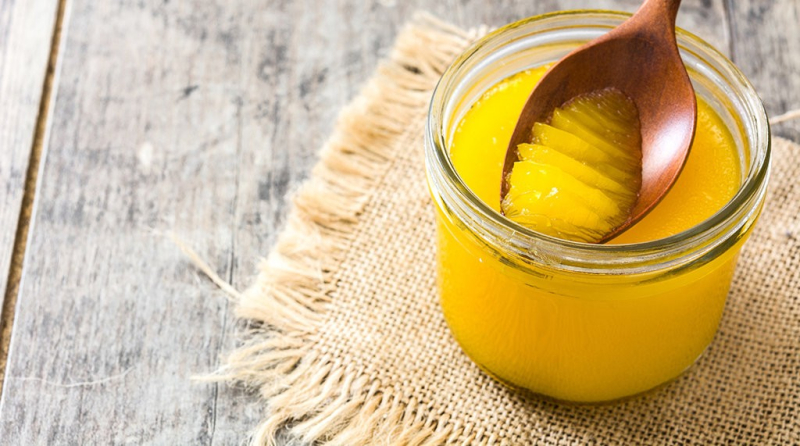
Why ghee should replace all oils in the fridge
0
Recently, butter has increasingly strengthened its position in the diet of supporters of proper nutrition. This is a real superfood, rich in vitamins and minerals, which was avoided for a long time due to its high calorie content. However, in small quantities, butter will not cause any harm to the figure, but will strengthen immunity and provide prevention of various diseases. The only clear disadvantage of butter is its high lactose content. This makes it unsuitable for the diet of people suffering from lactose intolerance or allergies. And in general, experts question the benefits of lactose for the body of an adult.
What is ghee?
How to leave only benefits in butter and completely get rid of lactose was invented many centuries ago in India. Ghee oil (or simply ghee) is actively used in Ayurvedic medicine for the prevention and treatment of cardiovascular diseases. Ghee is prepared very simply: butter is heated over very low heat until the milk and fat components separate from each other. After that, the white top is removed and pure transparent melted oil is obtained.
The calorie content of the products is almost the same, but still they have a couple of differences. For example, ghee is much better suited for cooking hot dishes: if butter begins to burn at a relatively low temperature (177 ° C), ghee can easily withstand all 252 ° C.
What are its benefits?
Butter (both whole and ghee) is a real source of healthy fats, vitamins and minerals. One of the main advantages is the high content of vitamins A and E – powerful natural antioxidants. They strengthen immunity, protect the body from damage by free radicals and have a beneficial effect on skin health. In addition, butter has a high content of vitamin D, which we all need so much now.
Ghee is 100% healthy unsaturated fats, which are necessary for the normal functioning of our body. This is the beauty of hair and skin, the proper functioning of the brain, and, most importantly, a healthy heart. If anyone questions the effectiveness of Ayurvedic medicine, there are numerous scientific laboratory studies that support the benefits of GHI oil for heart and vascular health. Compounds included in ghee prevent the production of “bad” cholesterol and clogging of blood vessels and protect the heart from premature aging.
Ghee or butter?
Of course, in terms of benefits, ghee is the absolute leader. It is suitable for people with intolerance or allergy to lactose, which has a beneficial effect on the health of the heart and skin. However, these two products are not always interchangeable. For example, if the baking recipe calls for butter, then it is not worth replacing it with ghee – the lack of a dairy component will make itself felt as soon as it comes out of the oven. But in some cases where you are used to using butter, you can replace it with ghee and get more health benefits: add ghee to porridge and puree and use it for frying – it will provide your dishes with a pleasant taste and aroma without harming health. I am.
The main thing is to remember that both ghee and butter are almost 100% fat, the nutritional value of which reaches up to 1000 kcal per 100g. Nutritionists recommend using no more than 4-5 teaspoons of oil (if they fit into your daily caloric intake).









Leave a Reply